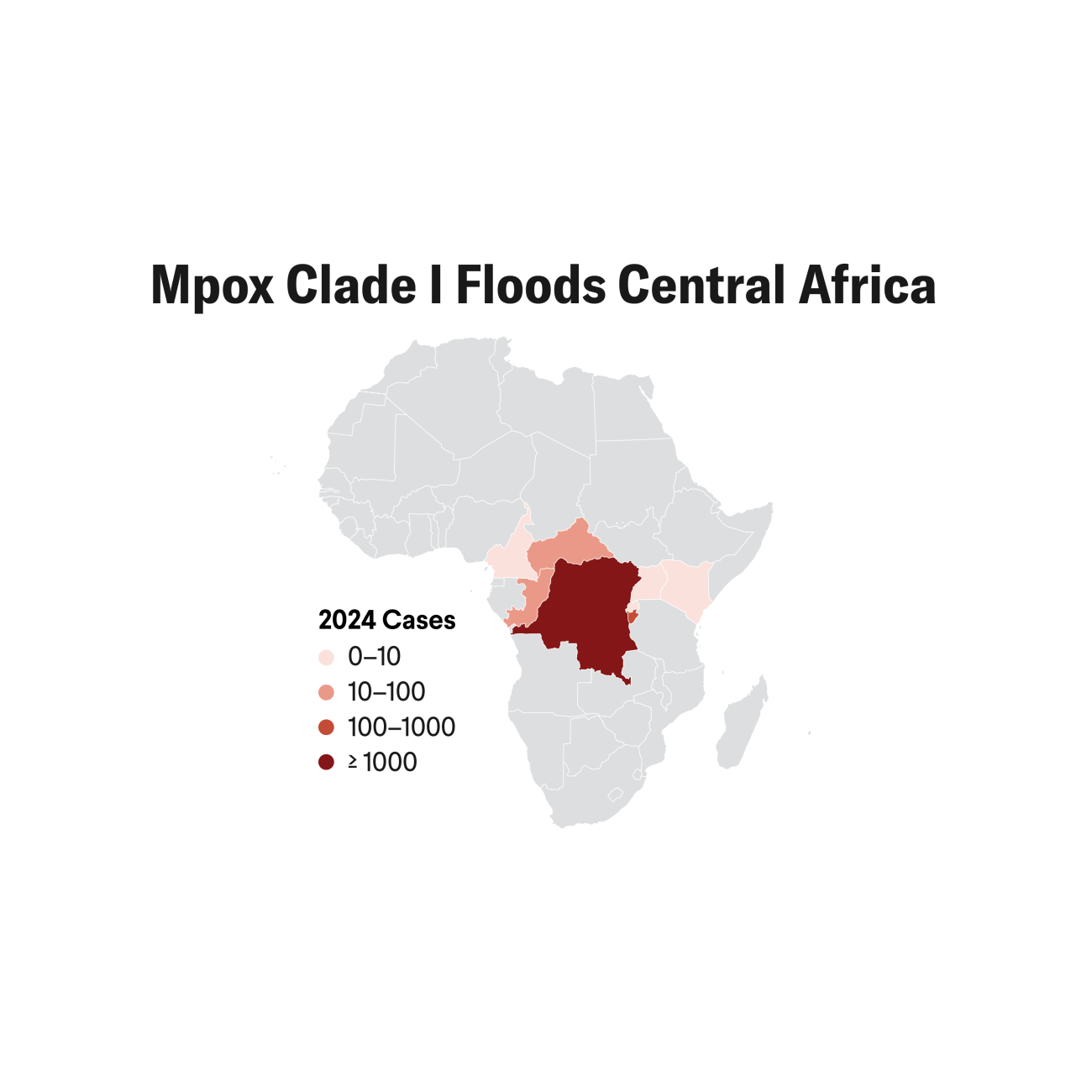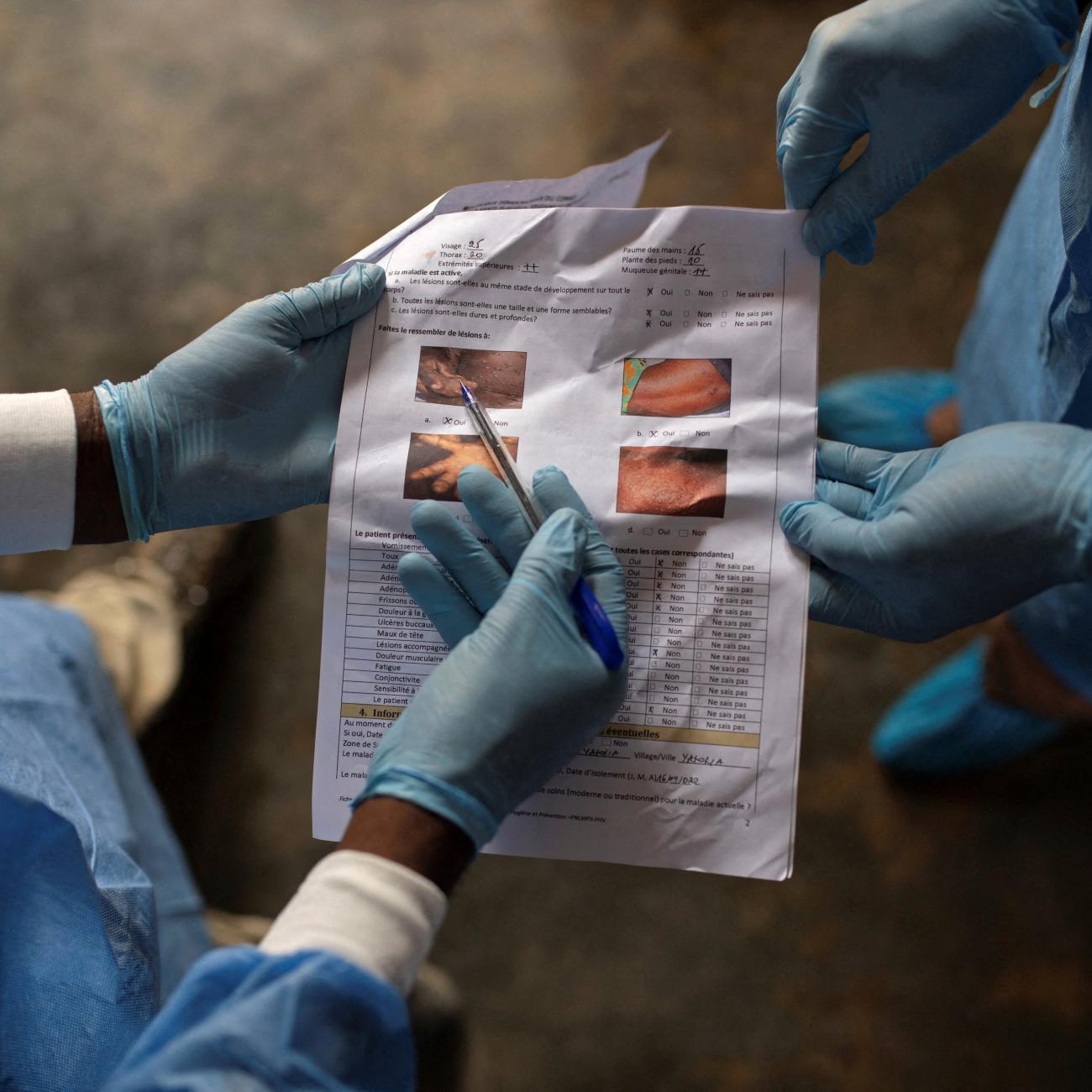As of October, more than 1,200 suspected cases of mpox have emerged in Nigeria from an outbreak that started in May. Mpox, which causes full body rashes and severe malaise, is endemic to Central and West Africa but has been responsible for outbreaks globally since 2022. Data from the Nigeria Centre for Disease Control and Prevention (NCDC) shows that the majority of cases are among infants and children.
Nigeria is the most populous country in Africa, and about 65% of its population is younger than 35. Many of these young adults are educated, engaged in social issues, and involved in grassroots organizations. Hence, youth-led initiatives are well positioned to help prevent the spread of mpox in Nigeria.
Some of the challenges Nigeria faces in combating mpox include limited access to quality health care, inadequate public awareness, inadequate vaccine availability, and weak epidemiological surveillance systems. Those challenges require coordinated public health efforts, community engagement, and international support to manage outbreaks effectively.
Collaborative efforts from youth health organizations in Nigeria have always been a boon for viral endemics there. Effective and thoughtful strategies include health awareness campaigns, grassroots outreach, and community engagements, and have been pivotal to reaching people via social media or through community engagement and practical education using the local language.
Such examples were seen during Lassa fever and cholera outbreaks, when youth-led organizations, through sponsored fellowships, equipped youths from across the nation. The fellows of these initiatives effectively reached citizens, on social media, in schools, and even in churches, helping mitigate the spread of the diseases. Those efforts were complemented by the Africa Centres for Disease Control and Prevention's response strategy, which included surveillance and public health education led by the NCDC.
The latest mpox outbreak provides another opportunity for youth-led intervention. In a bid to combat the outbreak, Nigeria Health Watch and Youth Health Action Network have led seminars and workshops to arm young individuals with the knowledge, skills, and resources needed to lead the fight against the disease.
Now, youth organizations are not only building a robust response to health threats but also cultivating a generation of health leaders. Given its population of more than 200 million, Nigeria faces an urgent need for further collaboration and initiatives by other youth organizations.
Through active involvement, such organizations can help dispel myths and misconception surrounding mpox, promote hygiene practices and vaccination uptake, support contact tracing and surveillance efforts, and provide care to affected individuals.
By effectively leveraging their energy, creativity, and social networks, young adults and adolescents can amplify existing efforts and their impacts. Health professionals should therefore tap into youth-led initiatives to raise awareness of mpox and ultimately promote prevention strategies. Additionally, youth-led interventions have the capacity to address unique challenges and concerns within their age cohort. That is especially valuable in Nigeria's current mpox outbreak, which is mostly affecting children and infants, further highlighting the important role of youths in outbreak prevention and mitigation. As Nigeria continues to understand the challenges posed by mpox, the involvement of youths offers a beacon of hope.
The Youth Factor
The U.S. Agency for International development (USAID) has so far donated 10,000 mpox vaccines to Nigeria, but vaccines alone are not enough to combat an outbreak. Educating communities on mpox symptoms, prevention, and treatment is also necessary to curb transmission.
Currently, about 25% of Nigerians lack proper sanitation facilities, which presents another obstacle to disease prevention. By encouraging handwashing and safe sex via social media and word-of-mouth communication, youth can encourage proper hygiene practices that prevent the spread of mpox.
Young adults and adolescents are best positioned to assist with contract tracing efforts. Suspected cases have increased in Lagos and Enugu, the most densely populated states, demonstrating how close contact can increase the risk of infection.
Youth organizations are not only building a robust response to health threats but also cultivating a generation of health leaders
Their social media literacy allows them to quickly identify and report suspected cases in their community and assist in data collection. Many youths also support health-care workers by volunteering in logistics and communication including manual data collection and community language fluency.
Youth are also essential to combating misinformation, another crucial factor in ensuring an effective outbreak response. This was seen during COVID-19, when young people helped debunk misinformation that convinced communities to take the malaria drug chloroquine as a cure.
By assisting health-care workers in vaccination efforts, data collection, and community outreach, young adults can effectively help bridge the gap in resources and manpower. To guarantee the momentum and success of youth-led health initiatives, more funding is needed. Current initiatives have been predominantly handled by nonprofit organizations, which are constantly in search of sponsors.
By leveraging their skills, energy, and influence, Nigerian youth have the potential to lead the fight against mpox and future health threats. It is therefore imperative that they take ownership of this challenge and work with health-care workers, government officials, and nongovernmental organizations to combat this public health crisis.
In Nigeria's quest to be free from native diseases, creativity, passion, and leadership should drive change to protect communities.





